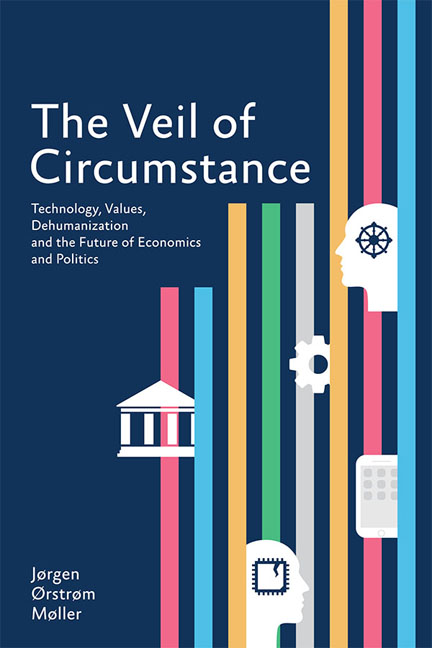 The Veil of Circumstance
The Veil of Circumstance Book contents
5 - Concentration of Capital, Corporate Governance, Power
from II - POLITICS
Published online by Cambridge University Press: 19 May 2017
Summary
The massive concentration of capital is threatening the survival of the capitalist economic model and opening a sluice gate for the abuse of power. Business has lost interest in the business–government–society triangle — choosing instead to pursue its own interests separate from those of society. Despite the prevalence of ideas and philosophies about corporate social responsibility, the main target of corporate governance, as invented and practised in the United States, is to generate rising quarterly profits — full stop. Part of the cause may be found in the system of corporate ownership through the stock markets, and even more through billiondollar investment funds, which have the effect of blurring the identity of those who actually own the companies. Asia, where ownership is more commonly in the hands of either the state or of families, may give rise to a new and different form of corporate governance.
Concentration
The conditions underpinning the philosophy of the free market are twofold:
(1) relatively easy entry to markets in order to establish new enterprises, and
(2) genuine competition in the market place. But nothing of the sort is evident in what is labelled the free market economies of today. An enormous concentration of capital puts a limited number of corporations in charge of the global economy — erecting huge barriers to market entry, and reducing and managing competition almost to extinction — and these corporations are run by a relatively small number of people.
The relationship between the two major institutions of the nation-state — the business sector (primarily the large corporations) and the public sector (primarily the government) — can be organized in several different ways. They can pursue mutually beneficial goals, supporting each other and looking upon each other as partners in shaping the future of the society and nation-state. Alternatively, they can pursue mutually inconsistent objectives — and find themselves continually in conflict with each other in a more or less openly adversarial relationship. A third option is that the business sector ceases to see itself as part of society at all, viewing the government and the public sector as irrelevant to its own decision-making, which is focussed on its own self-serving objectives.
- Type
- Chapter
- Information
- The Veil of CircumstanceTechnology, Values, Dehumanization and the Future of Economics and Politics, pp. 116 - 134Publisher: ISEAS–Yusof Ishak InstitutePrint publication year: 2016
